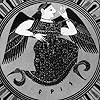Jonathan
asked:
Does anyone else thing that Mr Washington was a little too idealistic? The idea that black folks ought to forego education and focus on economics and the accumulation of wealth isn't a balanced plan in terms of advancing the race. Quite a contrast with Du Bois from what I have read so far. So does anyone else think he oversimplified the problems American black folks face?
To answer questions about
Up from Slavery,
please sign up.
Ray
He absolutely did not tell blacks to forgo education. His concern was that some types of "education" were impractical, especially for those who had just left slavery. Also, some people saw education as a way to avoid hard work. He saw it as a way to make hard work more fruitful.
His goal for education was to have each person be competent in trades, so that they would bring value to their community. This would ensure that they could earn a living, and foster goodwill with their neighbors.
His goal for education was to have each person be competent in trades, so that they would bring value to their community. This would ensure that they could earn a living, and foster goodwill with their neighbors.
Aron
Yes, he was an idealist and in many ways too optimistic. But to call this a “propaganda tract” is to dismiss the enormous achievements & accomplishments of a man born into slavery, who created an institution that has helped thousands of people come up from poverty, made major contributions to the advancement of science in many fields, and had major positive impact on the lives of countless people & US society as a whole. You don’t have to agree with everything he believed, but it’s a travesty to belittle him. The man is an inspiration & he accomplished more in his lifetime than most humans ever do.
Cinder
I will say he is not being too idealistic and is very realistic in the area of concurrent black economics. His stance on education is not about foregoing it. It is equal to stating that training to become an auto mechanic is better than majoring in English for someone in the lower class. Careers opportunities in the liberal arts in general, even now but more so then, are filled mostly by upper class people with contacts. He did not want blacks, especially children of former slaves, to waste time in these studies. Du Bois and Washington had things right and wrong in their respective beliefs. Du Bois was more idealistic to me. I actually think the issue is that Washington was not idealistic enough to recognize the need to be forceful.
David
"Education is not a thing apart from life—not a “system,” nor a philosophy; it is direct teaching how to live and how to work." - from the book
Forked Radish
No, and Washington never advocated the forgoing of an education; high, ordinary, or otherwise, quite the opposite. But he did emphasize the importance of practical* education. While, Du Bois was mostly just an intellectual and critic who only griped about the race situation without offering any viable solutions.
*Practical, as in a practice, as well as sensible.
*Practical, as in a practice, as well as sensible.
William Drisko
He did not say black folks ought to forego education and focus on economics and accumulation of wealth.
If you actually comprehended his writing and its context you would understand he was advocating the notion of education of people who had been slaves. People who had been living on a plantation cut off from normal society and who had not been exposed to many of the things white people had and took for granted.
His idea was to teach them how to survive in the white mans world as a free person — something that was totally foreign to them. He recognized that, though they now could get an education, not all of them could become doctors or lawyers or teachers.
He in fact promoted a balanced education. He did not oversimplify the problems the recently freed black people faced, but wanted to prepare them to become self reliant, and to be able to lay an economic foundation so they could have the power to move forward and thrive.
He saw that wallowing in the past and looking to the white man controlled government for more hand outs would not provide the free black people with the power to thrive in a country where they were already at the bottom of the ladder.
I am extremely disappointed that more people have not read his book and that more “so called” educated readers fail to grasp just how prescient and intellectually competent this man was.
Yet I am not at all surprised that it is not on many, if any, modern university reading lists.
If you actually comprehended his writing and its context you would understand he was advocating the notion of education of people who had been slaves. People who had been living on a plantation cut off from normal society and who had not been exposed to many of the things white people had and took for granted.
His idea was to teach them how to survive in the white mans world as a free person — something that was totally foreign to them. He recognized that, though they now could get an education, not all of them could become doctors or lawyers or teachers.
He in fact promoted a balanced education. He did not oversimplify the problems the recently freed black people faced, but wanted to prepare them to become self reliant, and to be able to lay an economic foundation so they could have the power to move forward and thrive.
He saw that wallowing in the past and looking to the white man controlled government for more hand outs would not provide the free black people with the power to thrive in a country where they were already at the bottom of the ladder.
I am extremely disappointed that more people have not read his book and that more “so called” educated readers fail to grasp just how prescient and intellectually competent this man was.
Yet I am not at all surprised that it is not on many, if any, modern university reading lists.
Jennifer
Yes, I do. To me this book reads more like a propaganda tract to earn money for Tuskegee than an actual autobiography. I didn't find any personal feelings or insights in the book at all. I enjoyed The Souls of Black Folk far more and felt like it was a more realistic portrayal.
About Goodreads Q&A
Ask and answer questions about books!
You can pose questions to the Goodreads community with Reader Q&A, or ask your favorite author a question with Ask the Author.
See Featured Authors Answering Questions
Learn more








